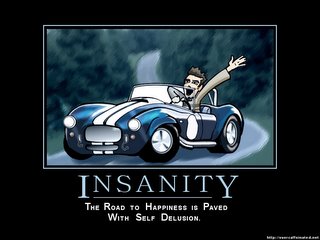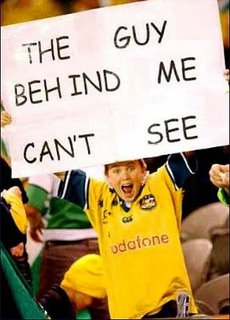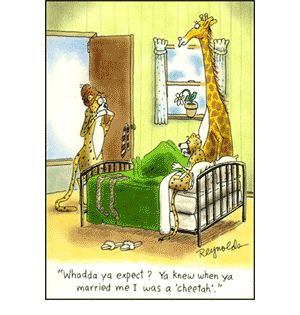As all of you know, a lot of things are about to change for me. I'll be off Interferon soon, I'm going back to work, and I'll be able to take part in many, many things that I've missed doing over the last year, like driving, running, and just being able to get out of the house without throwing up in public parking lots. To say I'm excited is an incredible understatement. I'm elated.
Surprisingly, I got another big change today. But before I get into the logistics of this event, let me give you a bit of background info.
In 2003, my dad was diagnosed with kidney cancer- renal cell carcinoma. It's a particularly aggressive and fast-moving form of cancer, and by the time he found out about it, it was a football-sized tumor that spanned from his kidney to his stomach and attached to the vena cava. Needless to say, it was all down hill from there, and he passed away January 6th, 2004.
I wasn't there for my dad the way I should've been. I was in California, and though we talked twice a week, I know it hurt him that I didn't come to Texas more often to spend time with him before his death. I spent a few weeks with him in April, and then I got the call in late November that he needed me. I had asked my dad many times if he wanted me to move home, but he always said, "No, sugar. I'm alright. You have your life there and that's what I want." I look back now and know that he didn't want to worry me, and I wish I'd been smarter about the whole thing. He was being selfless, like he always was, and I should've done the same for him.
I was by his side the few weeks before his death, and I learned so much about myself and about life and death in general, just by being there through that. He was a wonderful, strong man, and he deserved a much better death. But this is sometimes how life works: bad things happen to good people, it hurts, and we get through it and move on. In the end, my dad told me good-bye and assured me that death was what he wanted at that time.
It was, of course, difficult for all of us. My dad was the one who primarily raised me, and he and my stepmother were very happy while they were together. Up until that point, they were the only family I'd really ever known, and it felt real and genuine and wonderful to be a part of one, a real family. My stepmom has a very large family, fourteen siblings in all, and with all of them there during the ordeal, there was a great deal of support, which made it easier for everyone.
I re-evaluated a lot about my life at that time, and, after going back to San Diego, I decided I wanted to be closer to family. I moved to Dallas that same week.
Fast forward to May, Mother's Day. I went to see my stepmom and take her out for Mother's Day. She was having an incredibly tough time dealing with my dad's death.
I called the week after to check on her, and there was no answer. I left a message. Two days later, I find out about the melanoma. My doctor tells me that this is an extremely large nodular tumor, and that I need to get treatment soon, and my life is seriously in jeopardy.
I don't want to tell my stepmom this on the phone, and so I continue leaving messages like nothing is wrong. I write letters. I drive to her house to surprise her. She never calls or writes, and I never see her. I write my aunts and my stepsister and ask why she isn't speaking to me. I call and write more letters. I have no responses. It has been over a year since she has spoken to me and I assumed, finally, that she no longer wants me as a part of her family.
And then, today, I thought,
Okay, one last try. She answered the phone.

I don't know why people act the way they act when they find out the people they love have cancer.
My relationship with my stepmom has changed because of my Dad's cancer and death. She can't see me anymore.
And someone that I trusted and loved and relied on and needed totally freaked out, came down on me, and let me down when she found out that I had cancer.
None of us react the way we think we will in these situations. Even now, with fellow survivors, I am surprised by my reactions.
I should've been there for my dad when he had cancer, but I didn't think I could do it. And I didn't want to. That's the honest truth. I didn't want to watch the first man I ever loved die.
In the end, I stalled when I shouldn't have. My friend KelMac told me to go to him, whether I wanted to or not. So I did. I'm so glad she did that.
I don't know the point of this blog. I guess I just want to say something that we all know, and that is this: that this life and death we're given, I don't know how many chances we get with it, and it's not easy. But we all just need to realize that we need to be a little more careful with it, I think.
We can't go back in time even when we'd give our whole future to do so. And so these little moments that sometimes seem so pointless, they're actually opportunities to do the things we know we need to do.
People make mistakes, and we still have to love them and hope the best for them, even if that means our own tiny piece of them is broken. We carry that broken piece with us forever if it's not fixed.
That's how important those tiny moments are that we let just slip away.
Hemingway said that people are like their bones- they break sometimes. And sometimes the break heals, and it is stronger in that place than it ever was before. But even when it is stronger, the break is still there. It never goes away, no matter if that is what we want and hope and pretend to be the truth.
It's one of those cancer clarity moments, I guess.
I don't feel right judging my stepmom for this, even though I miss my family- or what once was my stepfamily. Christmas and Thanksgiving and Easter weren't the same without them, but maybe that's just the way things will be for a while. Or maybe that's the way things will be forever.
In the end, the truth is, this woman has no obligation to be my family. It hurts, but I have to think of my dad, and what he would do. He would be selfless and wonderful and forgiving.
And so that's what I'm going to use this tiny moment to try to be.
This is probably the most personal blog I've ever written, and it's honestly quite frightening to put out there. In essence, my journey with my stepfamily is over, and I'm sharing all of that with you- not just because I can, but because it's important, this little bit of knowledge I've been granted. And I know you'd share it with me, if it was the other way around.
Thanks for listening.
Peace,
-MissM










